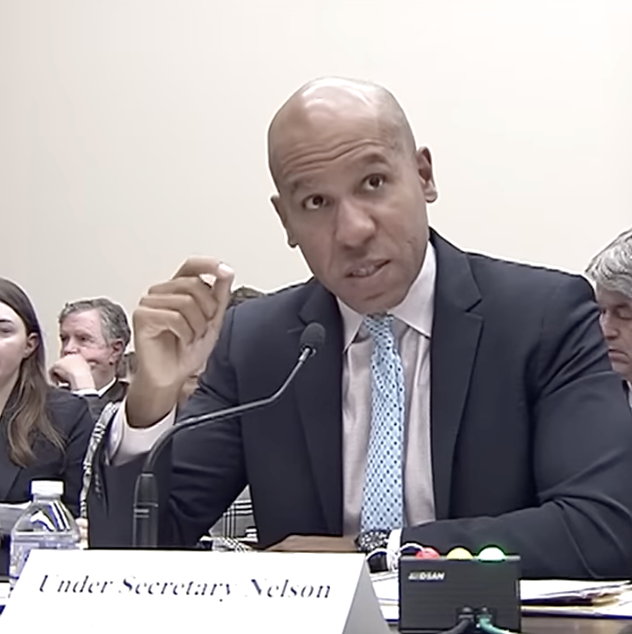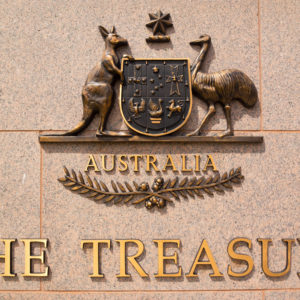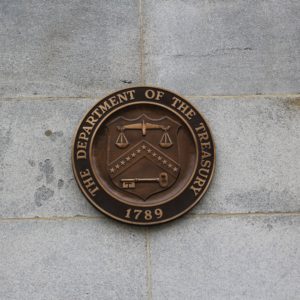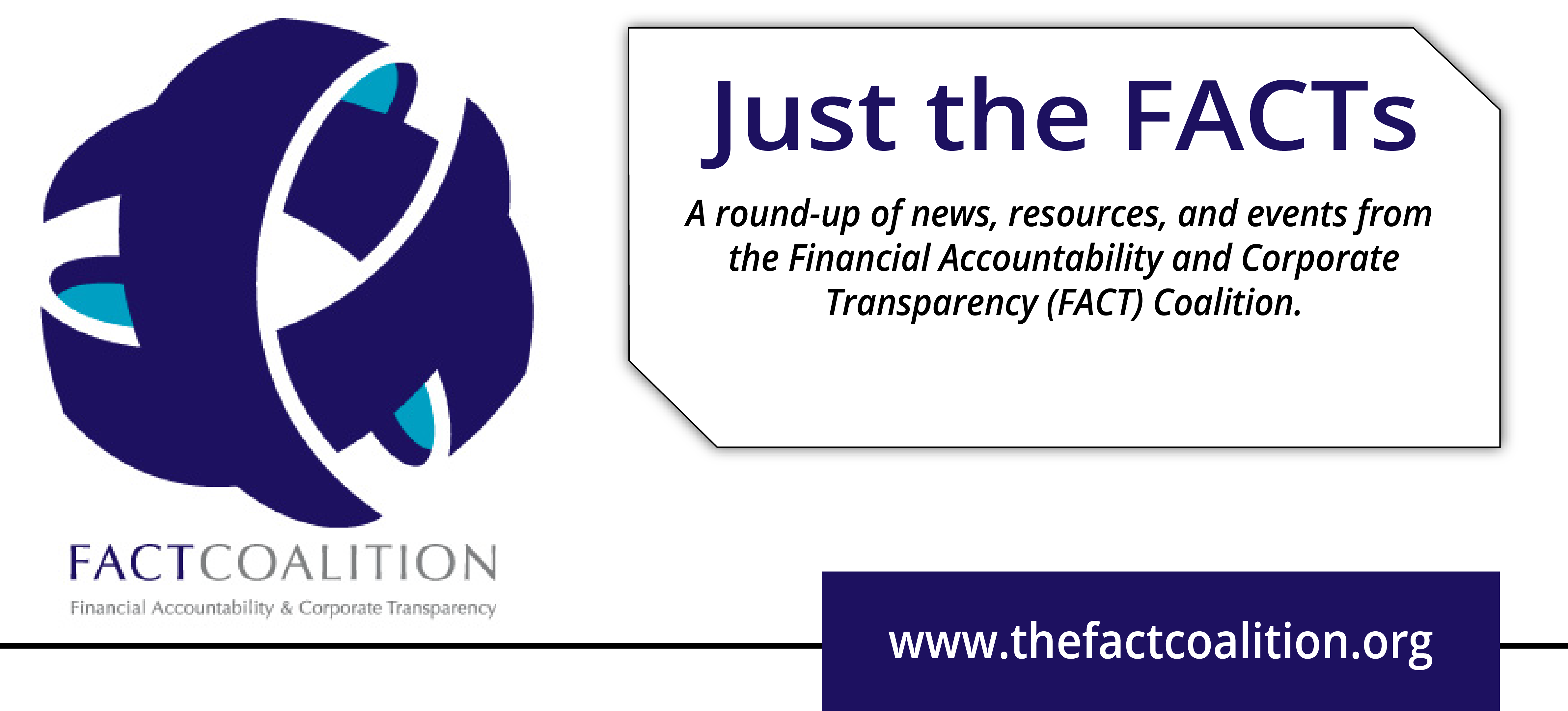“Just the FACTs” is a round-up of news stories and information regarding efforts to combat corrupt financial practices, including offshore tax haven abuses, corporate secrecy, and money laundering through the financial system.
Send feedback or items for future newsletters to Thomas Georges at tgeorges@thefactcoalition.org
Here is the State of Play
Treasury Department Continues to Collect Ownership Information Following Court Ruling

On March 1, 2024, a federal district judge in Alabama found the Corporate Transparency Act (CTA) – the most consequential anti-money laundering law in a generation – to be unconstitutional with respect to a limited subset of reporting companies. While this decision does not broadly affect Treasury’s ability to collect beneficial ownership information in the short term, FACT is coordinating with members and allies to defend the law while this ruling is appealed.
This decision is the result of a challenge brought by the National Small Business Association (NSBA) and one of its individual members early last year against Treasury Secretary Janet Yellen. While the Treasury Department is currently barred from enforcing the CTA against the plaintiffs under this ruling, Treasury’s Financial Crimes Enforcement Network (FinCEN), the bureau responsible for implementing and administering the law’s database, has confirmed that it will not enforce the law against plaintiffs in the case, which include members of the NSBA.
FinCEN confirms that, as the recent court ruling on the Corporate Transparency Act only applies to the plaintiffs, it will continue collecting info from other filers to shed light the true owners of anonymous shell companies
— FACT Coalition (@FACTCoalition) March 5, 2024
A big deal, and the right movehttps://t.co/1lm7Uubr8R pic.twitter.com/1k68PiP8sV
Since the challenge was brought, FACT and our allies have been active in defending the CTA. FACT joined Transparency International U.S. and small business group Main Street Alliance to file an amicus brief in the case rebutting various claims made by the plaintiffs, including the insinuation that the CTA’s reporting requirements are unprecedented and burdensome for small businesses.
From the brief: “The CTA’s reporting requirements are neither unusual, nor unprecedented. In fact, most states collect more information when granting public library cards than is required under the CTA. The CTA (also) benefits small business owners by protecting them from unfair and fraudulent competition, while imposing minimal costs.”
In a statement following the ruling, FACT policy director Zorka Milin argued that Treasury should appeal the decision, as is currently expected. “We must not allow a single judge in Alabama to abruptly reopen the floodgates to criminals using anonymous companies to launder their ill-gotten gains,” she said. “This decision is off the mark in terms of constitutional interpretation and is based on a misunderstanding of U.S. anti-money laundering law. We urge the government to promptly appeal, and to request to stay the district court’s injunction pending appeal.”

Senior Treasury Officials Highlight Key FACT Priorities During House Hearing
FinCEN chief Andrea Gacki and Treasury Undersecretary Brian Nelson appeared before the House Financial Services Committee (HFSC) on February 14 to provide updates on Treasury’s ongoing work to address the U.S.’s status as the world’s foremost destination for dirty money. In addition to the ongoing implementation of beneficial ownership transparency under the Corporate Transparency Act, the witnesses highlighted FinCEN’s recent proposed rules cracking down on illicit finance through U.S. real estate and private investment markets.
During the hearing, Representative Ayanna Pressley (MA-7) questioned Director Gacki on FinCEN’s work to combat illicit financial flows derived from environmental crimes, both citing and entering FACT’s latest report, “Dirty Money and the Destruction of the Amazon,” into the record.
Environmental crime, like illegal forestry, is the 3rd most profitable crime in the world.
— Congresswoman Ayanna Pressley (@RepPressley) February 14, 2024
Not only does it worsen the climate crisis — it's also linked to illicit financial activity like money laundering.
We need financial transparency reforms to combat these harmful crimes. pic.twitter.com/LFDPumfvZu
Director Gacki confirmed that FinCEN views this particular nexus of crime as “an incredibly important concern,” and expanded on the bureau’s recent efforts toward building intergovernmental partnerships specifically targeting illegal mining, wildlife trafficking, and deforestation.
Another often overlooked impact of money laundering in the U.S. was raised by Representative Rashida Tlaib (MI-12), who highlighted the effects that a proliferation of dirty cash in domestic real estate markets can have on housing prices.
Now: @RepRashida asks about @FinCENnews's recent anti-money laundering rulemaking for real estate transactions.
— FACT Coalition (@FACTCoalition) February 14, 2024
"Huge influxes of illicit cash can distort markets, further incentivize developers to build luxury real estate and commercial properties instead of affordable housing" pic.twitter.com/kWbfShTfnG
While Director Gacki backed this assertion – saying that Treasury’s recently-proposed real estate rule is both an anti-money laundering measure and “an overall benefit to the residential housing sector” – she noted that the rule, as currently structured, will be difficult to implement without additional funding for FinCEN.

Australia Releases Revised Public Country-by-Country Reporting Draft Legislation
Earlier this week, FACT submitted comments on the Australian Treasury’s revised draft legislation implementing public country-by-country reporting (PCbCR) requirements for large multinational corporations. While this revised draft walks back some of the original proposal’s most groundbreaking aspects, it still represents a major step forward for global multinational tax transparency.
Specifically, while the original draft required reporting in every jurisdiction of operation, the latest draft reduces the scope to Australia and a list of 41 jurisdictions “that are typically associated with tax incentives, tax secrecy and other matters likely to facilitate profit shifting activities.” This list of jurisdictions is broader than the scope of the soon-to-be-implemented EU public CbCR Directive, which only requires reporting on EU member states and jurisdictions included in the flawed EU “black” and “grey” lists. The Australian list of covered jurisdictions notably includes a number of notorious tax havens omitted from reporting requirements under the EU Directive, including Singapore, Switzerland, and Bermuda. This list of jurisdictions, importantly, can be revised at any time by the Minister for Treasury.
While FACT’s comments expressed a strong preference for full disaggregated reporting on each jurisdiction in which a given multinational operates, a number of recommendations were made with regard to the government’s draft list of covered jurisdictions. Most notably, FACT recommended adding Puerto Rico – the jurisdiction at the heart of Microsoft’s ~$29 billion ongoing tax dispute – and four EU member states included on the Australian Taxation Office’s list of specified jurisdictions to the final reporting list.
The measure also introduces an Australian presence test to limit the reporting obligations of multinationals with “genuinely small Australian operations.” FACT questioned the need to apply a small-business test for a measure aimed at large multinational companies, and suggested a way to tighten the proposed test in order to minimize the risk that companies that profit-shift out of Australia would be exempted.
While there is no official timeline for the introduction of final legislation to Parliament, the draft measure would apply to income years beginning on or after July 1, 2024. FACT urges the Australian government to swiftly introduce final legislation in line with the exposure draft, and to avoid further compromises to the integrity of this critical tax transparency measure.
Latest from FACT

Press Release: FACT Welcomes Draft Anti-Money Laundering Regulations for Investment Advisers
In a major step forward for U.S. anti-corruption policy, FinCEN released its long-awaited draft rule introducing anti-money laundering (AML) responsibilities for certain investment advisors on February 13. While FACT’s review of the draft rule is ongoing, finalization of strong AML regulations for the $20 trillion private investment sector would do much to catapult the U.S. from a laggard to a leader in the global fight against illicit finance.
In a statement, FACT executive director Ian Gary welcomed the move by Treasury, saying that “This proposal further demonstrates that the Biden administration is intent on making 2024 a turning point” in this important fight.

Ahead of last month’s HFSC hearing, FACT submitted a statement for the record alongside our allies Citizens for Responsibility and Ethics in Washington (CREW) and the Foundation for Defense of Democracies (FDD) highlighting FinCEN’s crucial work in safeguarding the nation’s financial and national security.
From the statement: “Congress must resource FinCEN for the tasks ahead: whether that be for providing outreach to small businesses and financial institutions around the Corporate Transparency Act, or for closing additional loopholes in the U.S. financial system.”
FACT in the News

Judge Strikes Down Law Requiring Corporate-Ownership Disclosure
FACT executive director Ian Gary was quoted in the Wall Street Journal’s coverage of the Alabama court ruling.
“This is a pro-crime, pro-drug cartel, pro-fentanyl ruling which undermines the rule of law and allows criminals to use anonymous shell companies to hide their dirty money from law enforcement,” said Gary.
Scott Greytak, director of advocacy for Transparency International U.S. was also quoted in the coverage, saying that the ruling failed to recognize the core national security function of the Corporate Transparency Act.
“Instead, Judge Burke’s opinion imagines a world in which international money laundering simply doesn’t exist,” Greytak said.
Ian Gary’s quote was also picked up in coverage of the Alabama court ruling by the Associated Press’s Fatima Hussein.
The Taxcast #140: Taxing Multinationals, Unitary-Style
FACT policy director Zorka Milin appeared on the Tax Justice Network’s monthly podcast to discuss the ongoing implementation of U.S. beneficial ownership transparency under the Corporate Transparency Act, including the need for effective verification of data collected under the law.
Recent and Upcoming Event

Under Secretary for Terrorism and Financial Intelligence (TFI) Brian Nelson spoke with the Hudson Institute’s Nate Sibley last month on TFI’s ongoing work to safeguard U.S. national and economic security, including through beneficial ownership transparency and the rollout of new anti-money laundering regulations.

March 7: House Ways and Means Tax Subcommittee Hearing on OECD Pillar One
The House Ways and Means’ Tax Subcommittee held a hearing today on the Treasury Department’s proposed implementation of the OECD’s Pillar One, which would substantially reallocate taxing rights to jurisdictions where multinational corporations make revenues but do not necessarily have physical operations.

The 28th session of the UN Tax Committee will be held from March 19-22. This session is “one of only three remaining for this Committee membership to deliver on its ambitious programme of work for the 2021-2025 period.” Issues on the agenda will include taxation on the increasingly digitalized global economy, environmental taxes, wealth taxes, and transfer pricing.

June 18-21: International Anti-Corruption Conference 2024
The 2024 International Anti-Corruption Conference (IACC) – the premier global conference bringing together heads of state, community activists, non-profits, high-level policymakers, businesses, policy experts, and academics to address the complex challenges posed by corruption – will be held from May 15-17 in Vilnius, Lithuania.
About the FACT Coalition

